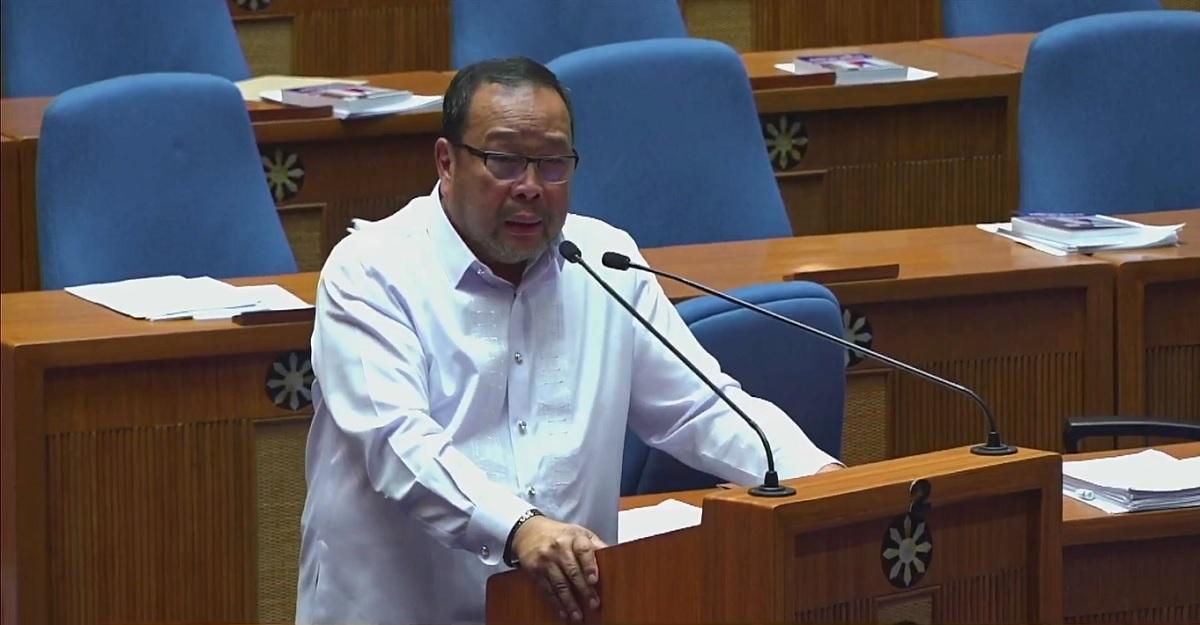House leader: Let ‘Bernas method” for Cha-cha be tested in SC


Let the Supreme Court (SC) decide whether Congress can introduce amendments to the 1987 Constitution through the formula of late member of the 1986 Constitutional Commission Joaquin Bernas, House Deputy Majority Leader Neptali Gonzales II said on Tuesday.
The lawmaker, who defends the Resolution of Both Houses (RBH) No. 7, made the remark during the second hearing of the House committee of the whole on the proposed amendments to the certain economic provisions of the constitution, amid warnings that Bernas’ formula may face constitutional challenges in the future.
The Bernas formula proposed a fourth mode of amending the charter where both houses of Congress will tackle and vote on the proposed constitutional amendments in their respective chambers as they do in ordinary bills, and the approved measure will be sent to the other house for processing.
In an earlier press conference, House Deputy Majority Leader and Tingog party-list Representative Jude Acidre said that the lower house will follow the Bernas formula in amending the charter.
Several lawmakers, including Gabriel party-list Representative Arlene Brosas, pointed out that the Bernas formula is not among the three allowed modes of amending the 1987 Constitution: the constituent assembly (con-ass), constitutional convention (con-con), and the people’s initiative (PI).
Brosas cited the opinion of former Supreme Court Chief Justice Reynato Puno who said that there are only three modes of charter change and he is raising a “red flag” on amending the 1987 Constitution by legislation.
But Gonzales maintained that seeking constitutional amendments by passing RBH 7, which is treated as an ordinary bill, should still be considered allowed as con-ass only requires three-fourths votes of all members of Congress.
“Effectively, we did the first mode because sabi Congress may, by a vote of three-fourths of all its members, propose amendment or revision and that’s exactly what we are doing,” Gonzales said.
“Kaya nga may nagsasabi na baka pumunta to sa Supreme Court later, then we welcome, ganun talaga. Alam naman natin that any disagreement on a legal issue, the final arbiter will always be the Supreme Court,” he added.
For Gonzales, if Congress will not try to use this method, then there will be no changes that will happen in the constitution.
“That’s the only way of doing it e because otherwise, kung hindi natin gagawin ito, then your guess will always as good as mine. Palaging ganito na lang ang mangyayari sa atin. Kaya nga we have to give the final arbiter a chance to rule on the matter,” he said.
“That opens the opportunity for next Congresses to do it sa ganitong pamamaraan. Perhaps, pwede na nilang i-touch nila later ‘yung other economic provision of the constitution sa pamamagitan ng ginagawa natin, should the Supreme Court later on find valid what we are doing right now,” he added.
He further pointed out that even in ordinary bills, warnings of constitutional challenges were raised but Congress still approves it.
“That does not prevent us from enacting that kasi kung matatakot lang tayo…eh talagang walang mangyayari sa atin. So we have to really test it and this is the only matter of doing that,” he said.
RBH 7 seeks to amend the Articles XII, XIV, XVI of the 1987 Constitution. The measure filed in the House mirrored the Senate’s Resolution of Both Houses No. 6.
The constitutional provisions on public services, education, and advertising industry will be amended by adding the phrase “unless otherwise provided by law.”
RBH 6 was filed by Senate President Migz Zubiri, Senate President Pro Tempore Loren Legarda, and Senator Sonny Angara after the Senate and the House leadership agreed in January that the Senate would lead the deliberations on the amendments to the 1987 Constitution as long as the people’s initiative, which is believed to be supported by congressmen including Speaker Martin Romualdez, would be halted.
But the alleged continuous signature gathering for the PI enraged the senators and resulted in a word war between members of the Senate and the House of Representatives.
The signature campaign led by PIRMA, a group that admitted that they sought the help of Romualdez in gathering signatures, specifically asks voters if they are in favor of amending Article 17 Section 1 of the Constitution by allowing all members of Congress to jointly vote on proposed constitutional amendments.
This amendment is a departure to the existing provision which does not explicitly state whether the House of Representatives and the Senate should vote jointly or separately on proposed amendments to the Charter via constituent assembly.
The Senate had unanimously released a manifesto against the present people’s initiative efforts, saying the House is out to abolish the Senate given that the document for signature asks voters to if they are in favor of amending the Charter to allow members of Congress to jointly vote on Constitutional amendments, a setup which would consider the vote of 24 Senators and more than 300 House members.
The Commission on Elections had already ordered the suspension of all proceedings related to people’s initiative. — BM, GMA Integrated News














